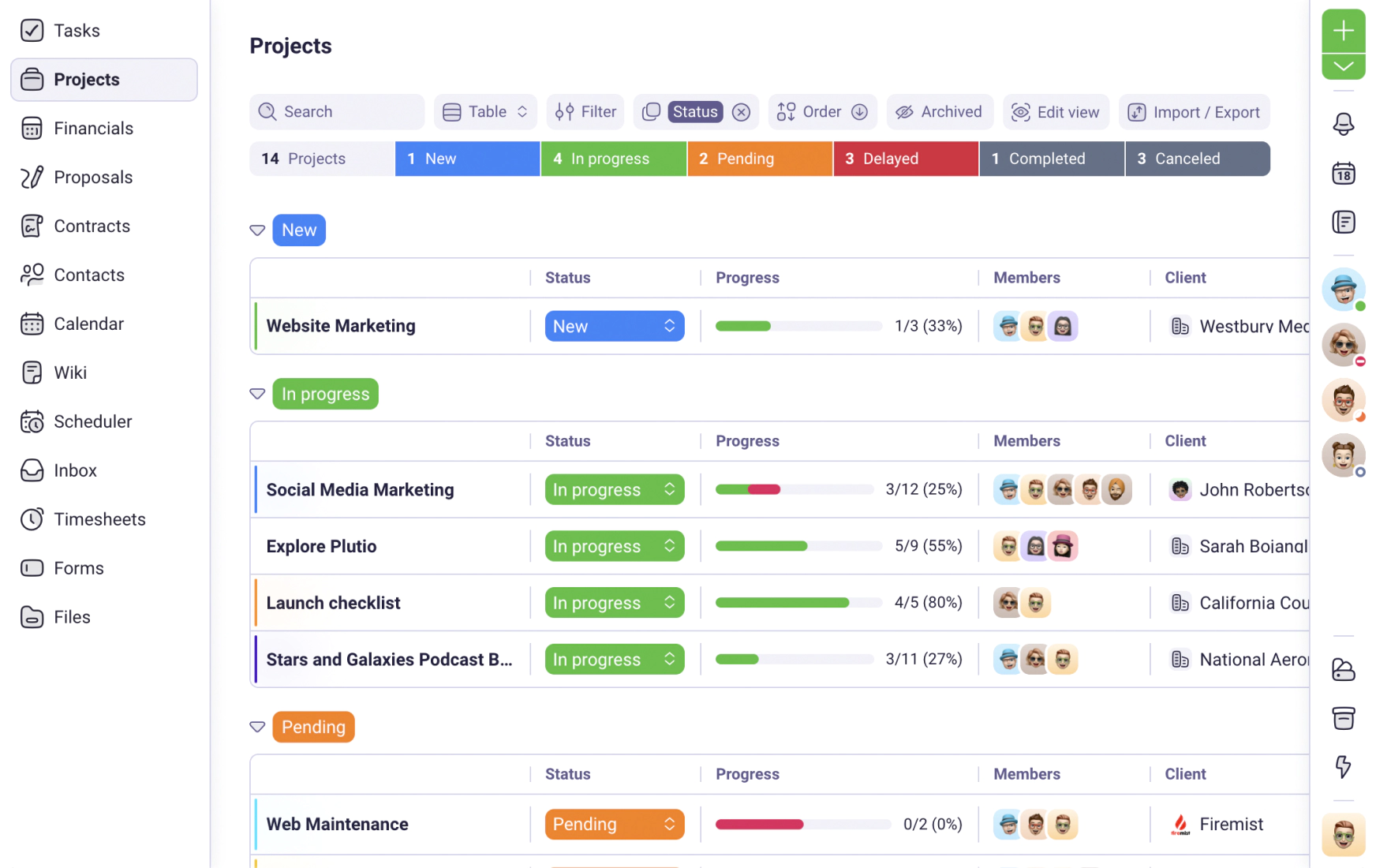We use cookies to personalise and enhance your experience.
7-Step Guide to Turn Your Side Hustle into a Full-Time Business
May 24, 2021
A side hustle is something you're passionate about, like a creative project or an additional skill you've learned.
Many people in the current workforce have a side hustle and use it as a secondary source of income. Some even use their side hustle as a part-time job alongside their full-time role.
When you become proficient in something you're passionate about and others are showing interest in it, there's a chance that you’ll be able to quit your full-time job and turn your side hustle into a full-time business.
If you're at that stage currently, here's an eight-step guide you can follow to get started.
1. Form an LLC
An LLC is a Limited Liability Company. It's an excellent option for people who are running their business as sole proprietors. A sole proprietorship is where you own and run the business yourself.
Forming an LLC gives you credibility and shows potential clients/customers that you're serious.
The advantages of forming an LLC are:
- LLC is arguably the most straightforward business entity to form.
- You don't need to have board members, stakeholders, directors, etc.
- One person or multiple partners can own an LLC.
- There are lesser administrative burdens.
- Flexibility to run the LLC as your own or hire managers to do it.
- Choose how you want to be taxed (as a sole proprietorship, partnership, or corporation)
- Limit personal legal liability
Given these benefits, it makes sense to form an LLC as the first step in your transition from side hustle to a full-time business.
You should also consider opening a business bank account to separate your personal expenses from the company's.
2. Decide how to scale
To turn your business idea into reality, you need to create a business structure containing the steps for how your company will grow.
Let's say you're a freelance writer and are now ready to start your own content agency.
To do this, the common requirements would be:
- Establishing a decent client base
- Hiring new writers
- Hire administrative staff
- Investing in writing, editing, collaboration, and other software
- Renting an office space (optional)
All of these options will help you grow your business. However, you should start small. Analyze where you currently stand and create a list of all the things your business needs to scale. Now arrange this list by priority.
In the above example, some might choose to buy new software before hiring new writers. Others might choose to hire administrative staff as their top priority. Only you can decide how your future business will operate.
Whatever your scaling plan is, the key is to start small. When in doubt, take help. Typically, hiring employees is a crucial yet difficult process to complete, but you can simplify it with the help of a team.
Don't over-invest or jump the gun and start a business too early. Take your time, establish a tentative timeline and then take the plunge.

3. Business plan
Your list of how you want to scale is just the tip of the iceberg. To actually put any of it into action, an entrepreneur needs a concrete business plan.
Creating a business plan requires a lot of research, including market research. It will help you to identify your target audience and determine how to cater to them.
Using the content agency example, you can't just market yourself as a content agency; there are hundreds of those out there. You need a more specific niche where you can prove your expertise.
Ideally, your business plan should include:
- Business goals
- How to achieve those goals
- Your target audience
- Competitor analysis
- Cost analysis
- Timeline
All of these factors help form a strong foundation on which you can operate a burgeoning business.
A business plan is also crucial for securing funding via investors, angel investors, venture capitalists, etc.
A comprehensive business plan will help you set realistic goals and manage expectations.
4. Cost analysis
The cost analysis is arguably the most vital part of your business plan. It will include:
- Business license and registration charges
- Hiring
- Materials
- Space rental
- Marketing
- Pricing plan
- Estimated profit
- Estimated break-even point
While most of these costs can be pretty easy to calculate, determining a pricing plan can be quite tricky. A pricing plan dictates how much you should charge for your products or services to achieve your business goals.
Pricing depends on a variety of factors, including business goals, market analysis, and target audience.
If your business goal is to maximize revenue, then your pricing model should be adjusted accordingly.
Suppose your side hustle is renting out a property on Airbnb, and you decide to make it a full-time business. In that case, your financial model should be geared toward maximizing revenue through revenue management.
If you're offering a service, app, or SaaS platform, you'll need to attract customers. Many businesses do this by providing a free or freemium trial. Both models have their merits and downfalls, so be careful when choosing between a freemium vs free trial.
Your cost analysis should be detailed and allocate a maximum budget for each expense. You can take a small business loan to manage expenses if needed.
5. Software
Software can support your business, improving the overall work process and making it easier to manage operations.
Let's say your passion was digital art. After creating a thorough business plan, your next step should be to invest in software that helps you draw faster/better, team software to collaborate with other artists, and e-commerce software that will let you access online marketplaces.
If you want to have an art store, then you'll need to invest in the appropriate billing software, scheduling software for store employees, and so on.
Some software solutions are helpful regardless of your niche. They are crucial for most small businesses.
The first of these is project management software. A platform like this should have features that can help you:
- Plan and execute multiple projects for different clients
- Set and measure key performance indicators (KPIs)
- Analyze project performance
- Boost team coordination
- Manage workloads and resources
The second is contract management software. Whether you're a physical business or an online business, you'll need contracts for everything. Every employee you hire, every client you work with, every vendor or supplier, all of them need to sign contracts.
With contract management tools, the entire process of creating, sending, and signing contracts is made easier.
And last but not least, you need a tool to automate your business processes so you don't get bogged down with administrative work. Automating business processes saves you a ton of time and money by eliminating low-impact, repetitive tasks from the workflow. You and your team are then free to focus on important tasks.
The more high-impact tasks your team completes, the faster your company can grow.
You'll also have to invest in niche-specific software to improve your business when needed.
6. Always be ready to change
No matter how small your business is or how profitable your niche is, there will always be risks.
No one could predict what happened in 2020, and many businesses paid the price for it.
Whether you start a cafe or a fitness center, be ready to pivot when necessary. We saw many cafes start selling essential groceries instead, and fitness centers turned to online classes to serve their customers during the pandemic.
Active risk management prepares businesses for legal liabilities, work management errors, financial uncertainty, and unforeseen circumstances.
7. Avoid burnout
Every small business owner must handle a lot of pressure in the initial stages. They oversee and handle multiple parts of a new business.
You'll likely dabble in PR, marketing, client relations, accounting, and other areas before you can afford to hire people to do it for you.
Handling all of these things, along with general obstacles, can be very stressful and even lead to burnout. You might start disliking what once used to be your passion.
To avoid this, you must take breaks, set up work-life limits, and most importantly, reconnect with your passion to remember why you started all this in the first place.
Now that your hobby has turned into a business, maybe you could develop a new hobby as well — something to get your mind off of the daily grind and stress.
Keep going!
Turning your side hustle into a successful business gig requires talent, hard work, and patience. You probably already have these mastered if you've juggled your passion with your job before. But you have to be persistent and consistent.
When you start your small business, you'll need patience and perseverance. You have to be strong enough to keep pushing past obstacles by coming up with innovative solutions and making hard decisions.
Persevere past the tough times, and your small business will start to shine.
Have you tried Plutio yet?
One app to run, grow, and automate your business with Super Work AI
Try Plutio for FREEStart free today
Your entire business, one login away
No credit card required. No contracts. Just the tools you need to run, grow, and automate your business with Super Work AI.
No credit card required

